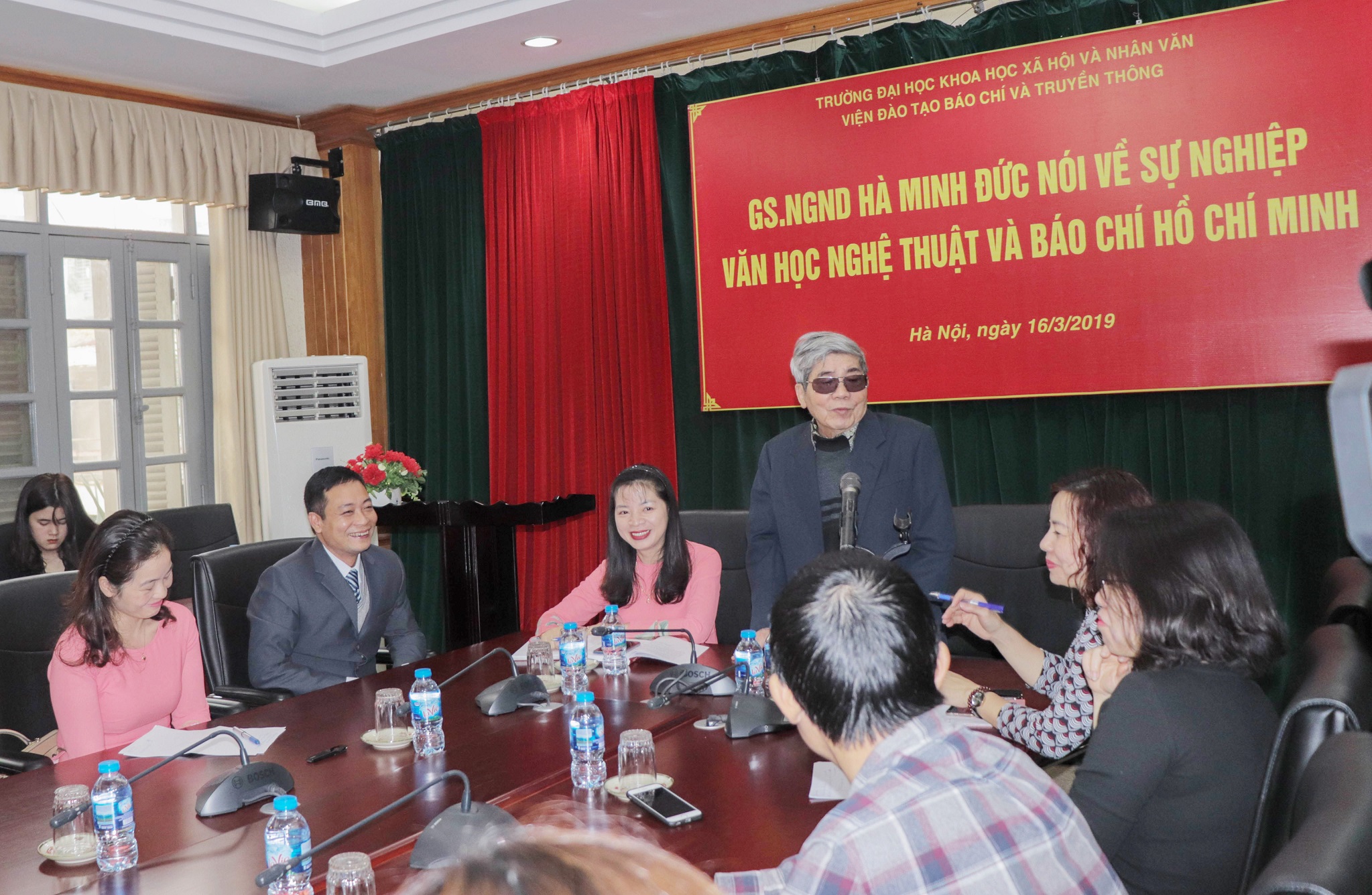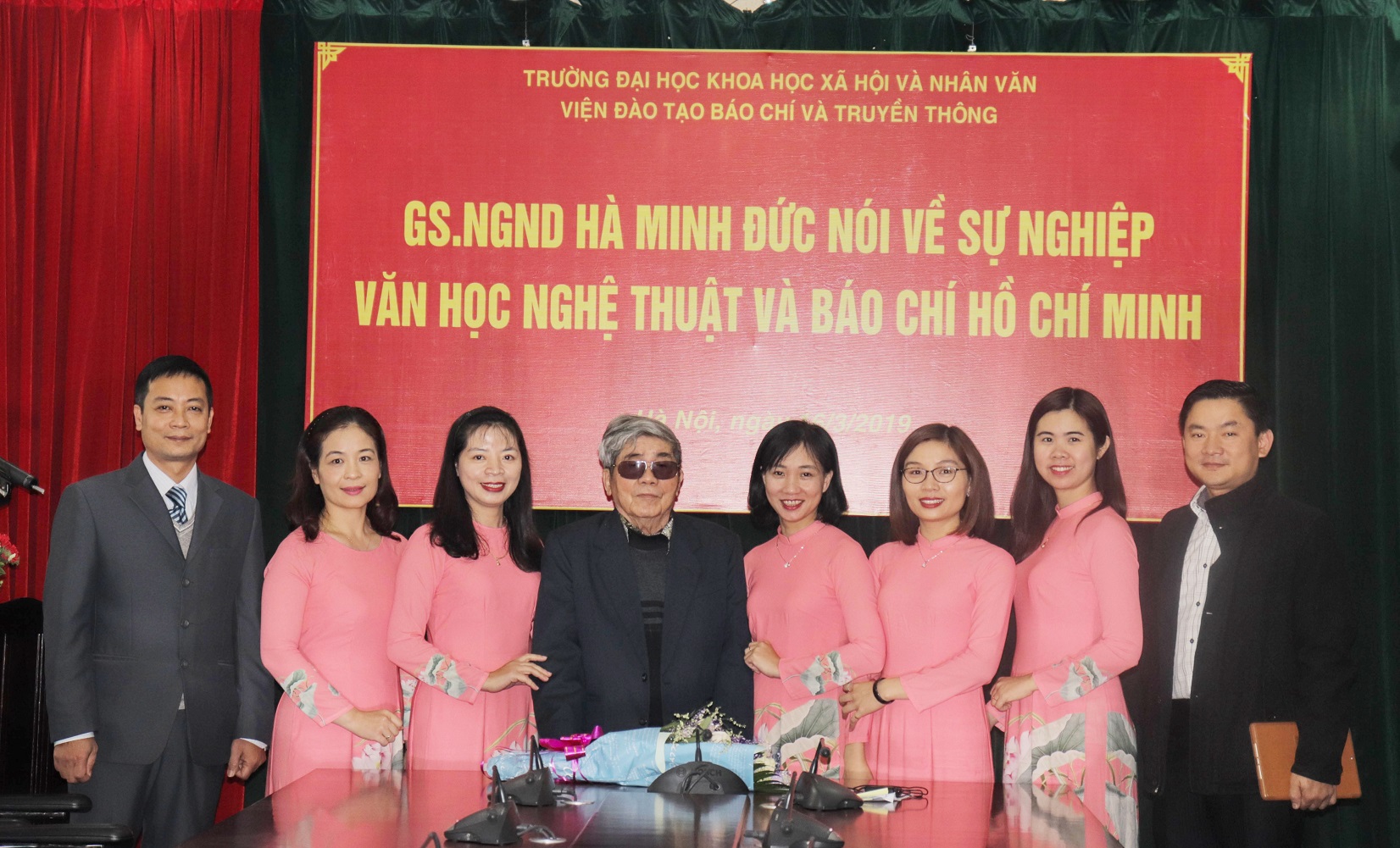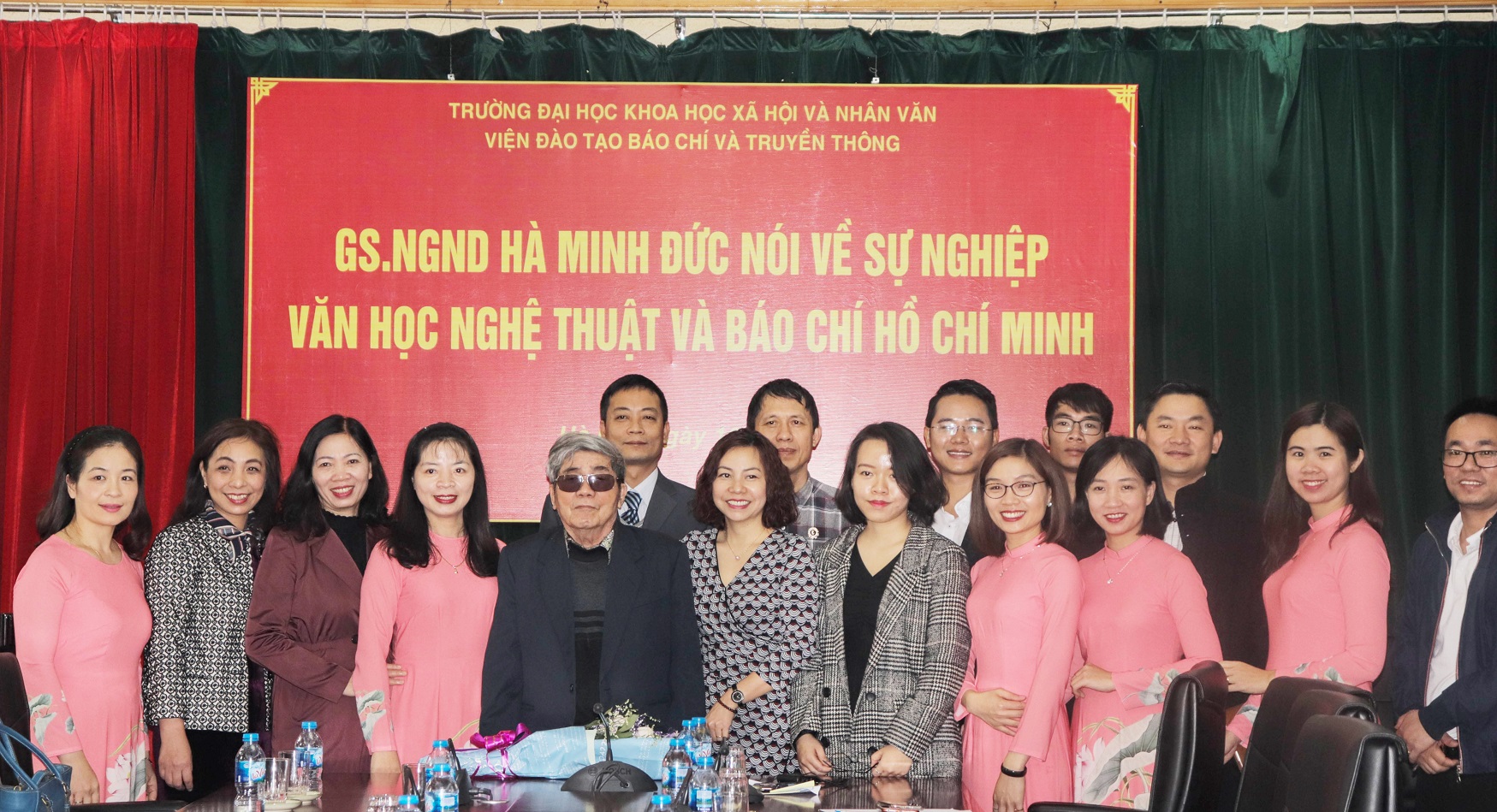
President Ho Chi Minh devoted his whole life to national independence, freedom and happiness of the Vietnamese people and contributed to the common struggle of peoples in the world for peace, national independence, democracy and social progress. As an outstanding revolutionary, President Ho Chi Minh was also a very famous writer, poet and journalist. In 1990, UNESCO, on behalf of the international community, honored President Ho Chi Minh as a national liberation hero and outstanding Vietnamese cultural figure.

For nearly 3 consecutive hours, Professor Ha Minh Duc discussed and shared with students of the University of Social Sciences and Humanities about the life and career of literature, art and journalism of Ho Chi Minh, from which he summarized Ho Chi Minh's ideology, ethics and style and lessons for the younger generation.
Right from the beginning of the 20th century, President Ho Chi Minh clearly saw the importance of literature, art and revolutionary journalism, and throughout his life, he always used journalism as a sharp weapon to fight against colonialism and feudalism and an effective means to propagate revolutionary ideas.

He is the author of over 250 poems, the most prominent of which is the collectionPrison Diaryincluding 133 articles in Chinese, and was also the author of dozens of short stories. Ho Chi Minh wrote hundreds of valuable political essays and literary pieces, including excellent works such asDeclaration of Independence, Call for National Resistance, Testament,.. Besides, he founded many newspapers such asThe miserable,Adolescent,Independent Vietnam,… and has been involved in journalism continuously throughout his life.
Ho Chi Minh always appreciated the role of the people in the historical process, in the revolutionary cause. Uncle Ho affirmed the role and mission of the people in his revolutionary cause. "It is a hundred times easier to endure without the people, a thousand times harder to complete with the people." His whole life was a life for the people. As early as the 1920s, leader Nguyen Ai Quoc said simply and concisely: "Freedom for my people, independence for my Fatherland, that is all I want, that is all I understand."

Ho Chi Minh's thoughts on respecting the people, promoting democracy, and caring for people's lives are expressed right from the purpose of literature and journalism. He advised: For whom do we write? For what purpose do we write? What to write and how to write? These are the interconnected steps that have a meaningful motto for journalism and literary creation.
Uncle Ho's example of serving the people, the country, loving, being attached to, and respecting the people is a model of morality and style of a communist, a leader, and a manager. Uncle Ho's ideology of patriotism, love for the people, respect for the people, lifelong sacrifice and struggle for the revolution, for the people, not greedy for fame and profit, with an honest, simple, and humble lifestyle is a clear moral example for us to follow. This is also the core content that the Central Propaganda Department oriented in 2019 on "Building awareness of respecting the people, promoting democracy, caring for people's lives according to Ho Chi Minh's ideology, morality, and style".
Author:SJC
Newer news
Older news